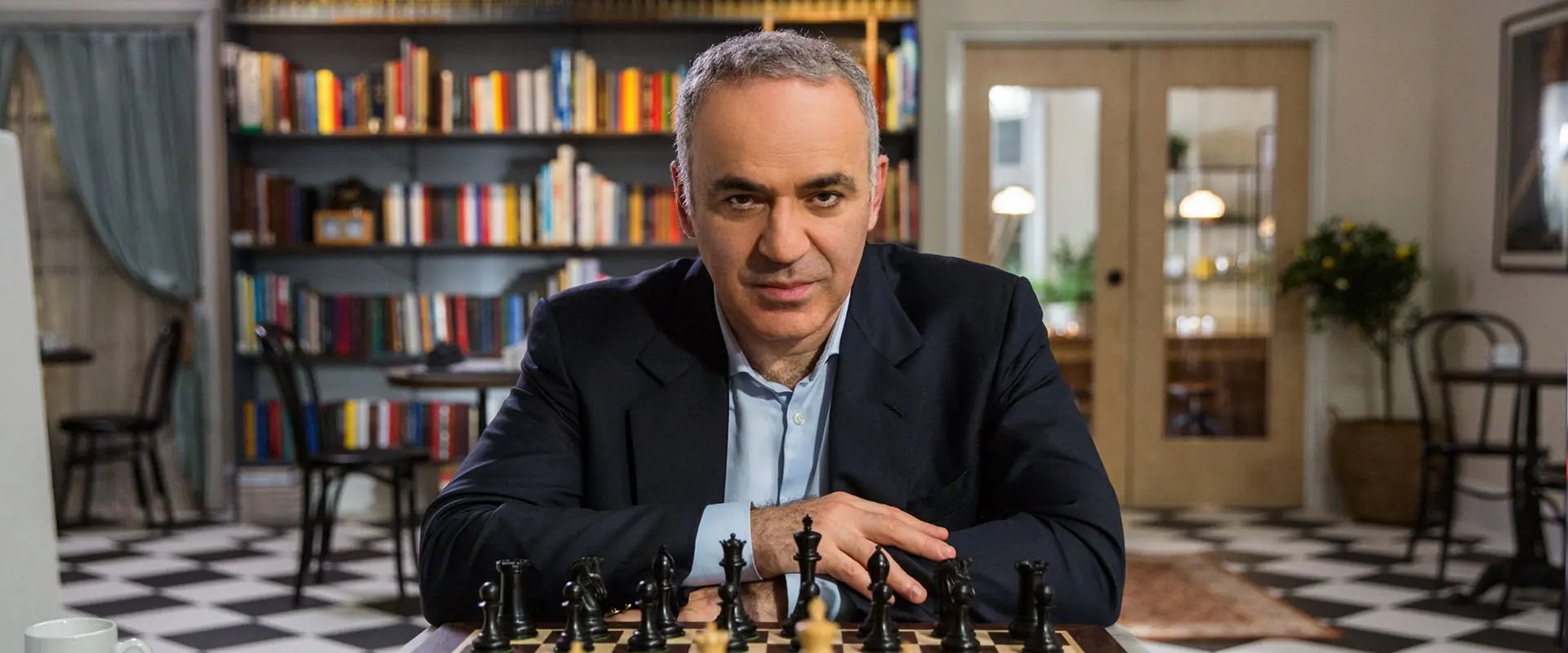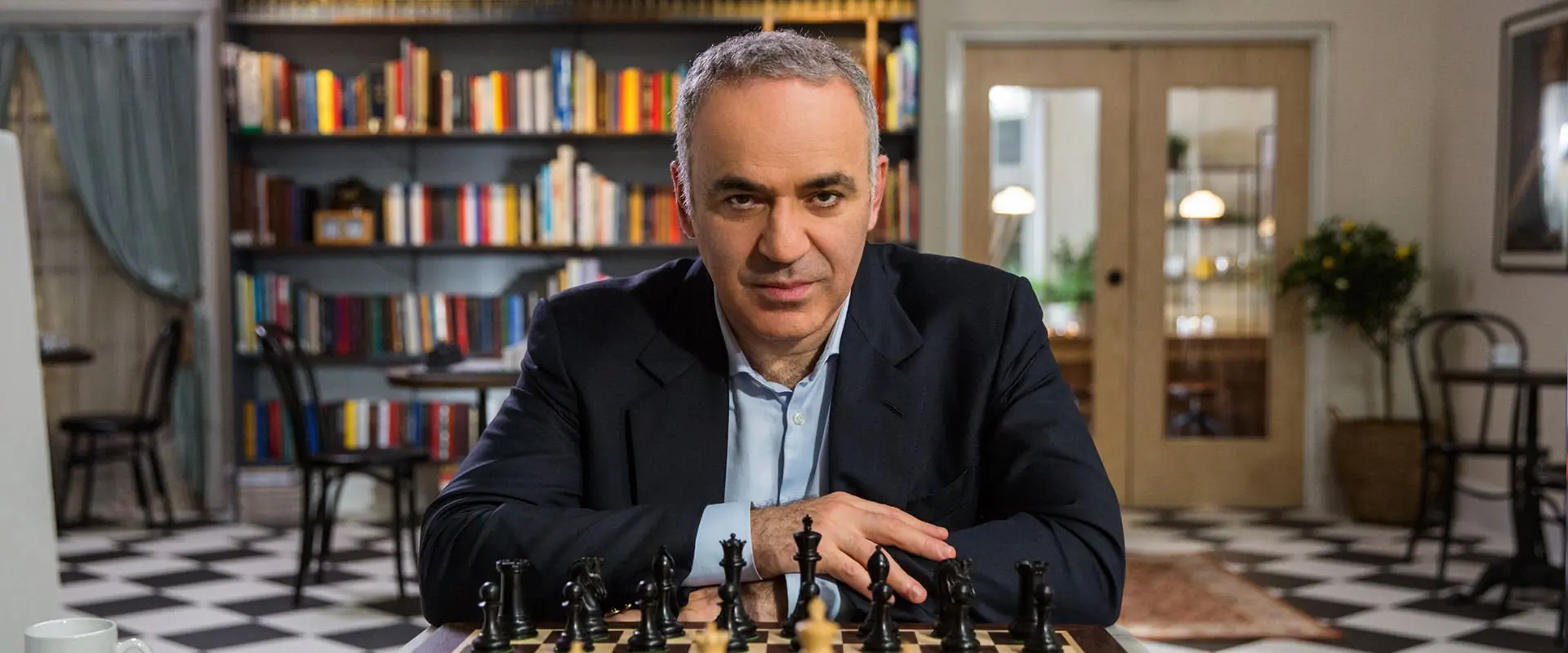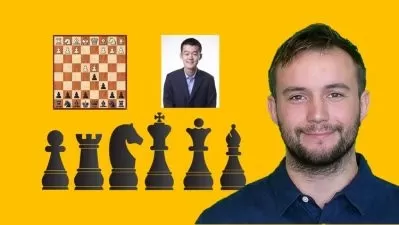Understanding chess principles | 37 vital chess principles
Mykhaylo Oleksiyenko
2:54:45
Description
Learn to understand chess on a deeper level with a grandmaster
What You'll Learn?
- Study what to do and what not to do with your pawns
- Learn more about the bishops and the knights
- Your queen and your rooks. What you need to do with them
- Get to know what your pieces generally like and what they dislike
- Learn to care about your pieces. Strong pieces = strong position
- Learn typical opening, middlegame, and endgame mistakes
Who is this for?
More details
DescriptionThis course will help you understand the game of chess on a deeper level.
IÂ have selected 37 vital principles that will improve your play from the opening all the way to the endgame.
First, I honestly asked myself:Â "What do IÂ know about the pawns? What about the minor pieces?"
Then I asked myself: "What main principles do IÂ know about the heavy pieces and the king?"
"What other principles have IÂ learned in more than 30 years of playing chess?"
You will find the answers in this course. Obviously, chess is much deeper and more difficult than just a set of principles.
Nevertheless, it is crucial to know and understand the general guidelines. This way, you will not get lost in the woods of this wonderful game.
IÂ focused on the main ones that would benefit the students the most.
Learn and Master Chess Principles with a Successful Grandmaster
Learn what to do and what not to do with your pawns
Discover the preferences of your bishops and your knights
Understand your queen and your rooks and what to do with them
Get to know what your pieces generally like and what they dislike
Learn to care about all your pieces
This course will boost your chess understanding to the next level
The course is for chess players of all levels. The beginners and hobby chess players will learn the most from this course. Sometimes even the best players in the world can forget or decide to violate these principles.
Obviously, they know them better than IÂ do. They also know when you can break the principle.
However, sometimes it can play a cruel joke on them. The one example that comes to mind is the game IÂ followed closely back in 2015. London Classic 7th, Carlsen (2834) - Nakamura (2793), move 45. Hikaru Nakamura (â„–5 in the world at that moment in time), played 45...a7-a6 for no apparent reason. IÂ was shocked by the move! He violated the principle "Pawns do not go backward". Back then, IÂ only knew that the move was a mistake. Many years later, powerful chess engines proved that the move turned a bad position into a losing one.
After you finish the course, you will learn many more principles, that will help you play better chess. You will understand the deeper fundamental reasons behind those principles. You will know what to do and what not to do. More importantly, you will know why you need to do something, and why you need to avoid doing something.
The course consists of 5 sections,
Section 1 | Introduction: You will learn what this course is all about. IÂ will tell you how and why I decided to create this course.
You will discover that it is important to know, understand and follow the principles in the vast majority of cases.
Section 2 | Pawns:Â Here, you will find the most important principles about pawns.
François-André Danican Philidor once famously said the pawns are the soul of chess.
You will learn why that is still the case 270 years later!
Section 3 | Minor Pieces: You will learn why the bishops are better than knights.
You will also understand why knights are more dangerous than bishops.
You will study ways to treat your pieces well.
Section 4 | Heavy pieces and the King: Do you know the likes and dislikes of your queen?
Do you know what to do with your rooks and your king?
More importantly, do you know why you need to do what you need to do?
You will get all the answers in this section.
Section 5 | General Principles and Conclusion: You will learn the principles that do not connect to one single piece.
Why two minor pieces are usually better than the rook and the pawn?
How come the queen is much weaker than the three minor pieces?
You will learn the answers to these and other questions in this section.
At the end of the course, there would be a downloadable list of the principles.
Who this course is for:
- Beginner/hobby chess players who want to play better chess
- Chess enthusiasts that have studied my previous courses and want to know more
- Anyone who is interested in understanding the game of chess on a deeper level
- Chess players that want to have harmonious play from the start to the end of the game
Who this course is for:
- Beginner and club level players
This course will help you understand the game of chess on a deeper level.
IÂ have selected 37 vital principles that will improve your play from the opening all the way to the endgame.
First, I honestly asked myself:Â "What do IÂ know about the pawns? What about the minor pieces?"
Then I asked myself: "What main principles do IÂ know about the heavy pieces and the king?"
"What other principles have IÂ learned in more than 30 years of playing chess?"
You will find the answers in this course. Obviously, chess is much deeper and more difficult than just a set of principles.
Nevertheless, it is crucial to know and understand the general guidelines. This way, you will not get lost in the woods of this wonderful game.
IÂ focused on the main ones that would benefit the students the most.
Learn and Master Chess Principles with a Successful Grandmaster
Learn what to do and what not to do with your pawns
Discover the preferences of your bishops and your knights
Understand your queen and your rooks and what to do with them
Get to know what your pieces generally like and what they dislike
Learn to care about all your pieces
This course will boost your chess understanding to the next level
The course is for chess players of all levels. The beginners and hobby chess players will learn the most from this course. Sometimes even the best players in the world can forget or decide to violate these principles.
Obviously, they know them better than IÂ do. They also know when you can break the principle.
However, sometimes it can play a cruel joke on them. The one example that comes to mind is the game IÂ followed closely back in 2015. London Classic 7th, Carlsen (2834) - Nakamura (2793), move 45. Hikaru Nakamura (â„–5 in the world at that moment in time), played 45...a7-a6 for no apparent reason. IÂ was shocked by the move! He violated the principle "Pawns do not go backward". Back then, IÂ only knew that the move was a mistake. Many years later, powerful chess engines proved that the move turned a bad position into a losing one.
After you finish the course, you will learn many more principles, that will help you play better chess. You will understand the deeper fundamental reasons behind those principles. You will know what to do and what not to do. More importantly, you will know why you need to do something, and why you need to avoid doing something.
The course consists of 5 sections,
Section 1 | Introduction: You will learn what this course is all about. IÂ will tell you how and why I decided to create this course.
You will discover that it is important to know, understand and follow the principles in the vast majority of cases.
Section 2 | Pawns:Â Here, you will find the most important principles about pawns.
François-André Danican Philidor once famously said the pawns are the soul of chess.
You will learn why that is still the case 270 years later!
Section 3 | Minor Pieces: You will learn why the bishops are better than knights.
You will also understand why knights are more dangerous than bishops.
You will study ways to treat your pieces well.
Section 4 | Heavy pieces and the King: Do you know the likes and dislikes of your queen?
Do you know what to do with your rooks and your king?
More importantly, do you know why you need to do what you need to do?
You will get all the answers in this section.
Section 5 | General Principles and Conclusion: You will learn the principles that do not connect to one single piece.
Why two minor pieces are usually better than the rook and the pawn?
How come the queen is much weaker than the three minor pieces?
You will learn the answers to these and other questions in this section.
At the end of the course, there would be a downloadable list of the principles.
Who this course is for:
- Beginner/hobby chess players who want to play better chess
- Chess enthusiasts that have studied my previous courses and want to know more
- Anyone who is interested in understanding the game of chess on a deeper level
- Chess players that want to have harmonious play from the start to the end of the game
Who this course is for:
- Beginner and club level players
User Reviews
Rating
Mykhaylo Oleksiyenko
Instructor's Courses
Udemy
View courses Udemy- language english
- Training sessions 9
- duration 2:54:45
- Release Date 2023/03/25









